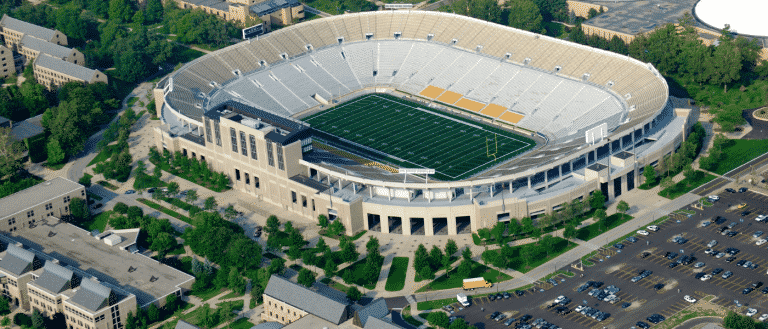Court Invalidates Oklahoma Sports Betting Compacts

The Oklahoma Supreme Court struck down two gaming compacts between Gov. Kevin Stitt and two Native American tribes Tuesday, halting legal sports betting hopes in the state and opening new questions in the contentious relationship between the state’s elected officials and its gaming tribes.
The 7-1 ruling invalidates deals negotiated by Stitt and the Otoe-Missouria Tribe as well as the Comanche Nation which would have allowed the tribes expanded dice and table game options at their gaming facilities. The deals also allowed certain facilities rights to open retail sportsbooks, which would have been the first legal books in the state.
Ruling Details
The April deals were immediately opposed by the Oklahoma Indian Gaming Association, which , as well as state lawmakers, who argued Stitt overstepped his authority in a lawsuit before the state’s high court. The plaintiffs argued only lawmakers could authorize “Class III” games such as sports wagering in new compacts.
The Supreme Court sided with Senate President Pro Tempore Greg Treat and House Speaker Charles McCall in a decisive ruling issued Tuesday.
“The tribal gaming compacts Gov. Stitt entered into with the Comanche Nation and Otoe-Missouri Tribes are invalid under Oklahoma law,” Justice James Winchester wrote in the majority decision. “The State of Oklahoma is not and cannot be legally bound by those compacts until such time as the Legislature enacts laws to allow the specific Class III gaming at issue, and in turn, allowing the Governor to negotiate additional revenue.”
Without the governor’s legal authority to strike individual compacts, Oklahoma gaming stakeholders now await a second, unrelated case that will determine the validity of the 2004 agreement that Stitt has argued expired on Jan. 1 and that the tribes believe is still in effect. In either scenario, Tuesday’s court ruling means Oklahoma sports betting won’t begin unless and until approved by the legislature.
“I’m not that surprised by the decision it struck me, as a lawyer, that the governor would be able to go about a way that would invalidate state law,” said John Holden, an assistant professor at Oklahoma State University, in an interview with Betting USA. “Certainty the governor has the power to negotiate on behalf of Oklahoma itself, but as this decision recognized, that’s limited up to within what the legislature has permitted in terms of gaming activity.
Possible Next Steps
For the near term, the court’s decision means Stitt can no loner seek individual deals with the 33 gaming tribes, his plan to replace the original compact overseeing all tribes struck in 2004. Stitt could appeal to the federal government, which didn’t stop the two prior deals’ ratification, but that appears unlikely if not legally impossible.
“I don’t really see a federal question that brings us to the Supreme Court,” Holden said. “This is probably the end of the road for these gaming compacts.”
That means the future of Oklahoma sports betting – and gaming overall – rests on a separate legal fight between the governor and the tribes.
If Stitt wins, the tribes will technically be operating their casinos illegally and will be all but forced back to the negotiating table. If the tribes win, the prior compact remains in effect in perpetuity, meaning all further negotiations, such as Stitt’s desire for increased gaming taxes, will come on their terms.
In either case, the court ruling reaffirms that any new gaming option, such as sports betting, will require lawmakers’ approval. The Oklahoma Legislature is not set to meet until next year, meaning it could be months or even years before sports betting is legalized in the Sooner State.
“With any luck, this decision will help bring the tribes, the governor and the legislature back to the bargaining table,” Holden said. “But we really don’t know at this point.”
Ryan Butler is a legislation analyst for ycgts.shop specializing in US sports betting legislation. Ryan breaks down the latest bills in each state to ensure our readers are up-to-date on where their states sit on sports betting. You’ll often find Ryan listening to committee hearings or preparing for the latest legislation based conference.






